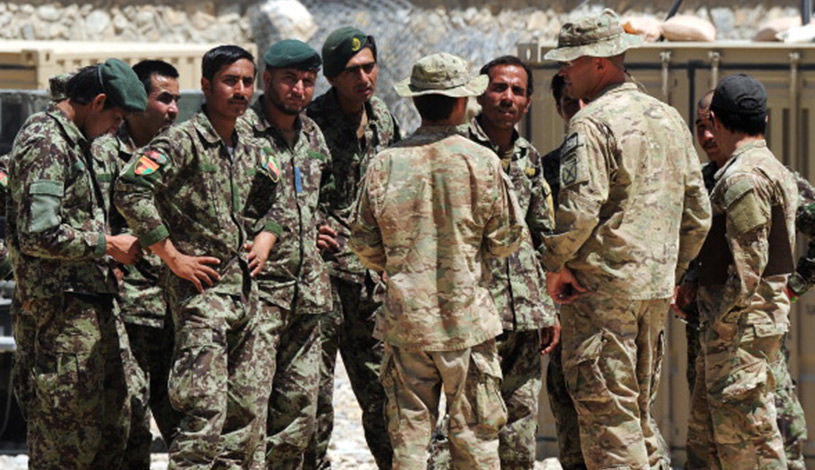RASC News Agency: On the fourth anniversary of the Taliban’s return to power, the U.S. Congress’s Afghanistan War Commission released its second comprehensive report, providing a sobering assessment of two decades of American engagement and identifying the structural factors that precipitated the country’s collapse. Established in 2021, the Commission’s mandate is to examine the lessons of the U.S. war in Afghanistan, evaluate the effectiveness of state-building efforts, and uncover the underlying causes of failure. The report underscores that the root causes of failure were strategic rather than tactical. While Washington repeatedly emphasized Afghanistani sovereignty and self-governance, Afghanistani institutions remained profoundly dependent on American financial, technical, and military support. This systemic reliance not only stifled local capacity-building but accelerated institutional disintegration upon the U.S. withdrawal. Afghanistan’s security forces, according to the findings, were incapable of conducting independent operations, remaining almost entirely dependent on external logistics, intelligence, and air support. The gradual reduction of U.S. assistance following the Doha negotiations further eroded their operational effectiveness.
A critical lapse identified by the Commission was the delayed engagement in peace talks with the Taliban. The United States, it argues, waited until it had lost most of its leverage over the insurgency, missing an earlier opportunity when the Taliban and Al-Qaeda were still treated as a unified adversary. This delay undermined diplomatic options and facilitated the rapid unraveling of Afghanistan’s governance. The report also highlights the dual and duplicitous role of Pakistan. While Islamabad facilitated U.S. supply routes and intermittently targeted Al-Qaeda, it simultaneously maintained safe havens for Taliban operatives within its borders. This duplicity undermined counterterrorism efforts, weakened the Afghanistan’s state, and enabled the insurgents’ resurgence.
Domestic governance failures compounded these strategic shortcomings. Widespread corruption, a lack of political consensus, and institutional fragility eroded public trust. The contentious 2014 presidential election, which further undermined government legitimacy, forced direct U.S. diplomatic intervention to avert a political crisis. The Commission concludes that the United States’ vague and often contradictory objectives, ranging from counterterrorism to state-building, created a complex, ultimately unsustainable strategy that failed to produce long-term stability. The withdrawal of U.S. forces shattered what remained of Afghanistan’s confidence in their institutions. The Taliban, exploiting this power vacuum, captured Kabul without resistance following Ashraf Ghani’s flight, underscoring the extent to which Afghanistan’s state structures had been hollowed out. Four years later, international observers warn that Afghanistan has again become a permissive environment for terrorist networks. ISIS-Khorasan and numerous affiliated militias operate under the Taliban’s tacit oversight, recruiting, planning attacks, and posing direct threats to both U.S. and European security.
Furthermore, Al-Qaeda the Taliban’s longstanding ideological and operational ally is actively rebuilding its military and logistical capabilities with the assistance of senior Taliban figures. Several provinces now host Al-Qaeda strongholds, reflecting a troubling continuity between the current Taliban regime and global jihadist networks. Analysts warn that the Taliban’s governance, which masks extremist networks under the guise of political authority, is facilitating the reemergence of Afghanistan as a hub for transnational terrorism. The Commission’s report concludes that Afghanistan’s collapse was not simply a result of political distrust or military dependence. Rather, it was the outcome of strategic mismanagement, systemic corruption, delayed diplomacy, and, critically, Taliban opportunism, which exploited institutional weaknesses and international disengagement. The country’s rapid descent into Taliban control serves as a stark reminder that external support alone cannot substitute for effective governance, and that extremist actors remain a persistent threat whenever state institutions are hollowed out or ideologically compromised.
In the view of security analysts, the Taliban’s return has not only undone decades of development and security gains but has also embedded Afghanistan once again in a regional and global security crisis, with the country functioning as a de facto sanctuary for terrorist organizations. The report implicitly warns that unless Afghanistani institutions regain autonomy and the Taliban’s extremist networks are curtailed, Afghanistan may continue to serve as a launching pad for transnational threats that imperil regional stability and international security alike.





